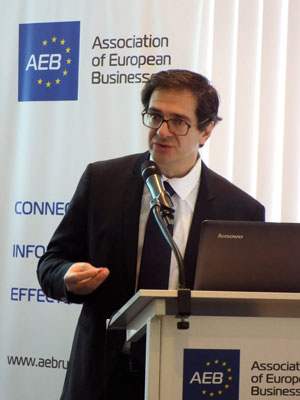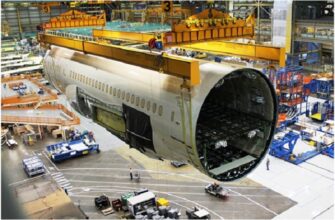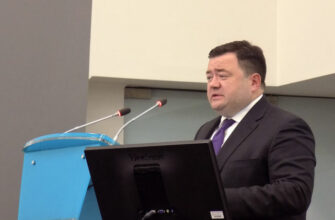Sixth annual meeting of the European Business Association with the Head of the permanent mission of the International Monetary Fund Gabriel Di Bella was held on November 02, 2016. Mr. Di Bella shared with the club of the largest foreign investors in Russia with his vision of our economy way from stabilization to growth.
International Monetary Fund, IMF – organization founded in 1945. Today it combines representatives of 189 countries. The headquarters are located in Washington. The purpose of the organization is the achievement of favorable conditions for the world monetary and trade exchange, sustainable global growth and poverty reduction, high employment. The main objective is the stability of the international monetary system.
Report 2016 was perceived by participants as encouraging. According to the Russian head of the IMF, first of all the stabilization of the Russian economy is in process and is accompanied by relevant objectives policy, although the decline in oil prices has delayed the economic recovery to the end of 2016 or beginning of 2017. Secondly, the increase in long-term growth of the Russian economy requires further reforms. Taking into account the demographics of the country, the national market will rise only if the increase in productivity following by the growth of income per capita.
Perhaps the main conclusion for the international investor was the fact that “Russia remained an expensive country” in comparison with investment opportunities in other countries. There is a high spending budget from non-oil revenues, and there are also high risks due to fluctuations in policy rates and etc. The primary internal risk is seen in the implementation of financial policy.
Another already mentioned problem is a sharp decline in the working population of the country (Rosstat considers working-age Russians 15-72 years), especially will decrease in the number the active employment age 25-49 years, as a consequence of the demographic crisis of the 1990s. The IMF takes into account only the national staff, excluding migrants. To reduce the negative effect Gabriel Di Bella was recommended to support human capital formation.
Possible external risks, according to the Head of the IMF in Russia, are, on the one hand, the price of oil and the volatility (variability – approx. ed.), of financial markets, especially in the United States and China. On the other hand he mentioned geopolitical tensions.
Sanctions imposed by Russia on Western countries greatly helped it to conduct qualitative reforms in the country’s economy. However, as emphasized Gabriel Di Bella, they have mixed effects, especially in long term prospect. “There are some specific sectors that cannot be left long in such position, in particular regarding import of equipment,” he said and added that the long-term effect of the sanctions is required to be studied before deciding about their continuation.




